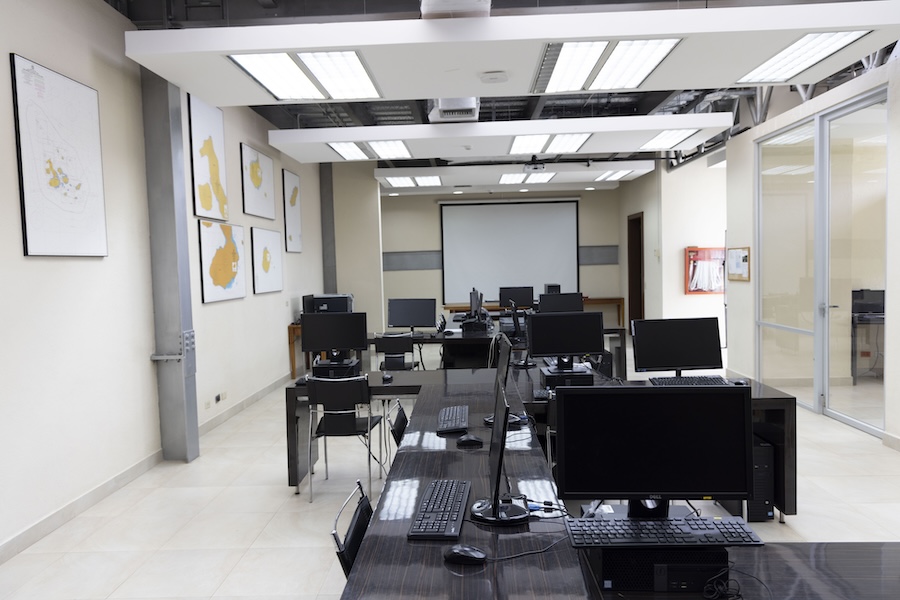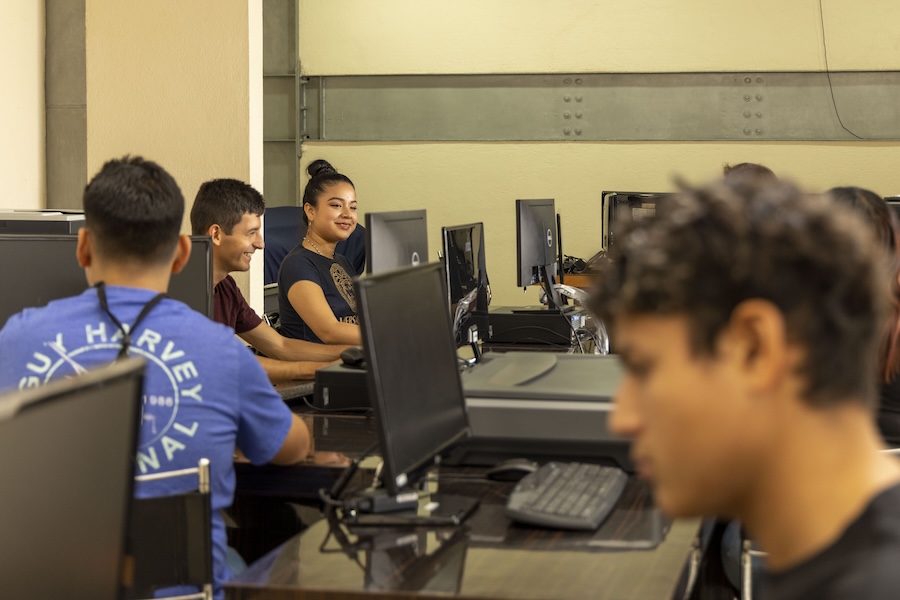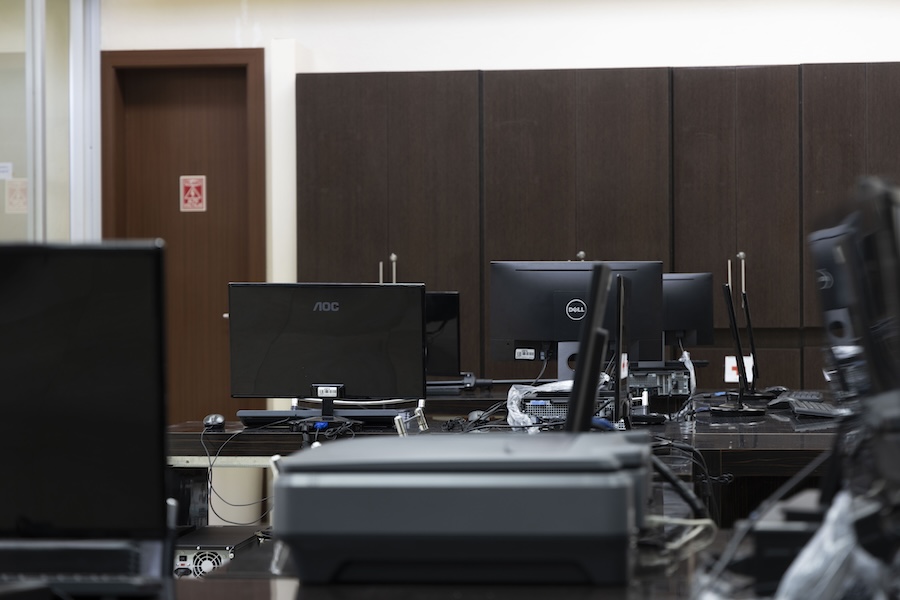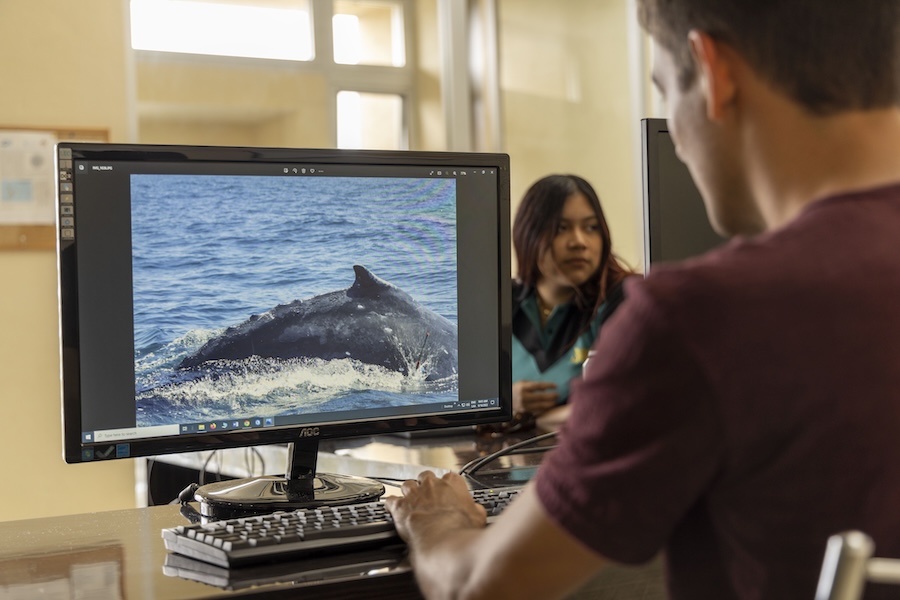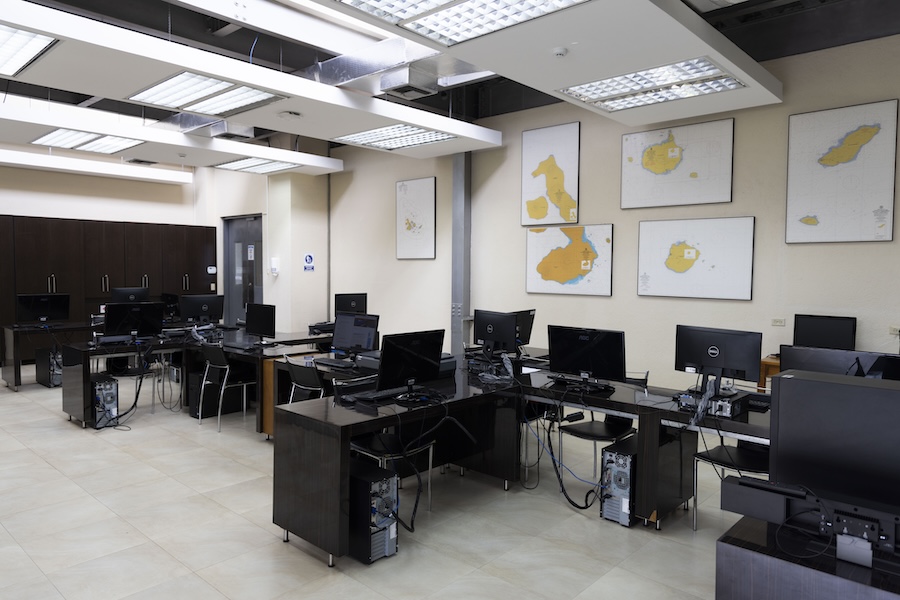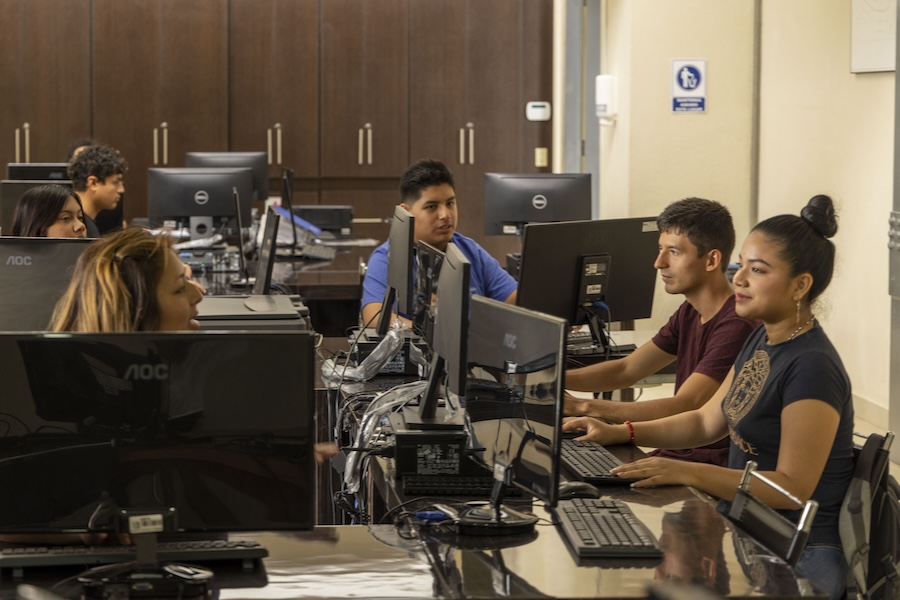
Ninguna instalación de investigación está completa sin las herramientas necesarias para rastrear, modelar y visualizar información y datos.
Los sistemas de información geográfica (GIS), la visualización de datos científicos, el mapeo y la representación de GPS, así como el modelado espacial y estadístico se enfatizan en el Laboratorio de Visualización y Ciencia de Datos del GSC. Las computadoras, los trazadores, los escáneres y las plataformas de software especializadas están disponibles para científicos, estudiantes e instructores de cursos, así como para la comunidad local involucrada en nuestros programas de divulgación.
Independientemente de lo que se necesite para hacer el trabajo, este laboratorio es la columna vertebral de la investigación realizada en el GSC.
Algunos de los proyectos en este laboratorio incluyen:
Monitoreo y mapeo de hábitat y análisis espacial de especies migratorias, endémicas e introducidas en Galápagos.
Monitoreo y mapeo de amenazas a Galápagos por contaminación plástica.
Historia biogeográfica de plantas endémicas como el Guayabillo en Galápagos.
Observatorio del cambio climático en las islas.
Mapeo de hábitats de importancia ubicados en ecosistemas rurales.
Uso de drones para la creación de mapas en tiempo real y construcción de futuros modelos predictivos de la distribución de especies nativas e introducidas.
Uso del suelo.
Estudio de alta resolución sobre microclimas de varias zonas vegetales de la isla San Cristóbal.
Seguimiento y control de animales de compañía y asilvestrados en zonas urbanas.
Desarrollo de propuestas para ayudar a asesorar rutas turísticas en Galápagos.
El laboratorio de visualización y análisis de datos está equipado con lo siguiente:
- Radios bidireccionales Uniden GMR5089-2CKHS
- Radios marinas VHF Icom-ICM73
- Radios bidireccionales Motorola MJ430CR GMRS/FRS
- Radios de Dos Vías Midland GXT795VP4 con cargador
- GPS Garmin GPSMAP 62sc
- GPS Garmin eTrex Venture HC
- GPS Garmin GPSMAP 60CSx
- GPS Garmin GPSMAP 64sx
- GPS Garmin RINO700 de mano con radio bidireccional
- Teléfono satelital Inmarsat IsatPhone2
- Hipsómetros
